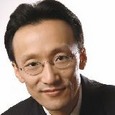Here's a radically new approach to treating obstructive sleep apnea: hypoglossal nerve stimulation. I read about initial successful pilot studies many years ago out of Johns Hopkins, but thought the concept never took off since I didn't hear anything more. I was wrong. ImThera recently announced their aura6000 Targeted Hypoglossal Neurostimulation (THN) device for obstructive sleep apnea at the Annual Meeting of the American Academy of Otolaryngology - Head & Neck Surgery in San Diego last month. There are two other companies rushing to come out with similar products. Apnex is one company and Inspire is another.
It turns out that this company's been busy developing this product and is about to undergo clinical trials in Europe before trying it out here the US. The technology's not new—it's basically a nerve stimulation device that activates that's been used on other areas of the body before. In this case, activation of the rib cage muscles causes the device to stimulate the hypoglossal nerve, which tenses the genioglossus muscle of the tongue.
During non-REM deep sleep, all the muscles in the body relax partially, whereas in REM sleep, all the muscles are relaxed completely. In sleep apnea patients, this partial and total muscle relaxation leads to repeated obstructions and arousals. By sensing that lungs are inflating, it stimulates the tongue muscle, preventing eventual collapse of the throat tissues.
In the original Johns Hopkins article from 2001, eight patients underwent this procedures on one side of the tongue, and the AHI dropped from 52.0 to 22.6 in non REM sleep and 48.2 to 16.6 in REM sleep. The final results aren't great, but significantly improved. Additional procedures may need to be performed, since the tongue isn't the only area of obstruction.
Since this procedure is still in the investigational stages, it won't be available to the general public for a while.
For more insider information on The Truth About Sleep Apnea Surgery, go to: http://tinyurl.com/yl8hsk5 Steven Y. Park, M.D. http://www.doctorstevenpark.com


